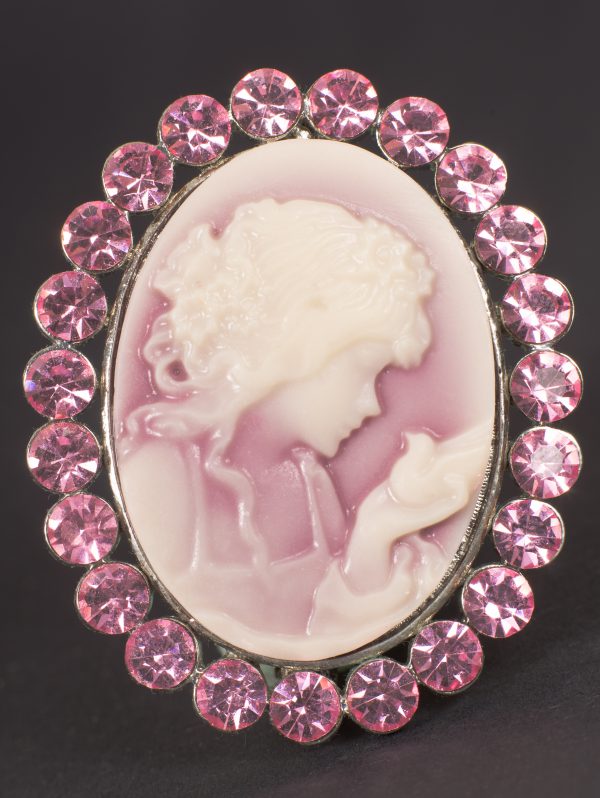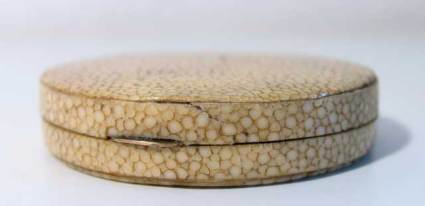Intelligence tests were all the rage in 1918. Without them, how could you determine whether someone was a dullard, a laggard, an imbecile, feeble-minded, retarded, or deficient (all terms I found in a single article in Century magazine)? How could you implement your eugenics program?
There were lots of articles about intelligence tests, but I was having trouble finding the tests themselves, so I had no idea where I fit in, 1918-intelligence-wise. Luckily, Literary Digest stepped in. Its February 16, 1918 issue included a test that, it promised, “is so easily used that within a brief period readers of The Digest will doubtless be applying it to their family and friends.” Okay, a hundred years isn’t all that brief, but here we go.

The test goes like this: you go through a list of 100 words, which have been selected randomly from the dictionary and placed in order of difficulty, and see how many you can define. 75 and above makes you a “superior adult”—top third of the population. 65 makes you an average adult. There are different scales for kids, but, trust me, if you’re a kid and you’re reading this blog, you’re superior.
The test designers are pretty flexible about scoring. Like, if a child defines “orange” as “an orange is to eat,” or “gown” as “it’s a nice gown that ladies wear,” then that’s okay. The key is to establish that you have a clear understanding of what the word means.
The easiest words are at the beginning, so you get a free pass on some of them depending on your age. A fifteen-year-old starts with #21. I’d suggest starting at #51.
Here’s the test. If you’re going to take it, don’t read any further until you’re finished—spoilers lie ahead. The Google dictionary is an easy way to check your answers.

Literary Digest, February 16, 1918
Whew! That was exhausting, wasn’t it? And surprisingly hard. Or maybe that’s just me.
I was pretty cocky going in. Not to get all braggy on you, but vocabulary is my thing. Whenever there was a vocabulary test—which, luckily for me, there is at several key junctures in the American educational process—I would ace it. Random dictionary words, how hard can they be? I figured I might miss a couple of 1918-specific words, about wireless telegraphy or animal husbandry or whatever, but I was counting on upper nineties.
I got a 92. Safely in the superior adult range, but not spectacular. If there had been a competition, with a prize like, say, a date with Ezra Pound, I definitely wouldn’t have won.
Here’s where I went wrong: Depredation. Drabble, Declivity. Ambergris. Theosophy. Parterre. Shagreen. Limpet.
In some cases I was close. I knew that theosophy was a philosophy related to theology, and that there were societies about it, but I didn’t know exactly what they believed. I knew a limpet was a sea creature, but I thought it was a wiggly fish. (Which doesn’t make sense in retrospect, given the phrase “stuck to me like a limpet.”) Other words, like drabble*, sounded like I should know them, but when I thought about the meaning I drew a blank. The only one that didn’t even sound familiar was shagreen. So. 92.
At this point, you may be thinking, false advertising—the blog title is about an intelligence test, not a vocabulary test. But the amazing thing is, it IS an intelligence test! The result, Literary Digest says, is reliably within ten percent of your score on the Binet-Simon (IQ) scale. And it doesn’t depend much on your level of schooling.
That’s right, this is a reliable, objective test of intelligence! There’s no earthly reason why, say, a sharecropper’s child should have more trouble identifying a cameo
or a parterre
or the other kind of parterre
than the child of a Rockefeller or a Carnegie.
It makes you think, doesn’t it? If a vocabulary test that’s so clearly reliant on cultural background is such an accurate predictor of your score on an IQ test, then maybe that should raise questions about the IQ test?
But that’s just me, with my 21st-century nitpicking.
I hope you had fun. If anyone got 100, please be in touch—and let me know where the hell you ever heard of shagreen!
*A cool feature of the Google dictionary is that it has a little graph showing how the word’s popularity has changed over time. Generally, these are fairly predictable, but “drabble” takes off like crazy in the 1960s and peaks in about 1975. I was puzzled, since I didn’t recall everyone suddenly talking about things becoming wet and dirty by movement into or through muddy water. Then it dawned on me: the graph traces the career path of Margaret Drabble, the British novelist. Who’s great! If, unlike me, you’re allowed to read books written in the last hundred years, I recommend The Millstone.






Funny, but shagreen is the only one I know. I have too much astigmatism, or whatever that middle-aged thingie is called (sounds like Presbyterian), to read the small print, so I didn’t actually SEE the word, but shagreen is a kind of fabric used to cover vanity tables and other Art Deco accent pieces. It’s greenish and similar to sharkskin. I’m chagrinned that I can’t come up with a more precise definition of shagreen, especially since I came across it many times during my years as an interior-design writer!
LikeLiked by 1 person
This was quite fun. Who knew that “homunculus” is actually becoming more commonly used than 100 years ago? I was stuck on that one, as well as sudorfic and casuistry. But parterre was no problem (thanks to living in England and visiting many estates and gardens). I thought shagreen might be some version of “chagrin” (French= regret) but no.
I’m still not sure about the validity of the test. It certainly ferrets out those who don’t read widely. But someone could have a high IQ and be deeply versed in science or medicine and not happen to know what a harpy is.
LikeLiked by 2 people
Glad you enjoyed it! If homunculus, sudorific, casuistry, and shagreen are the only ones you missed, then you’re the new champion. It turns out that shagreen is related to chagrin, which used to mean rough skin in French. Interesting about the rise of homunculus, which I hadn’t noticed. And, yes, the test does seem to be biased toward literary as opposed to scientific types.
LikeLike
No I am not the new champion! happy to reach the high 80s. 🙂
LikeLiked by 1 person
OK, Barbara’s still the champ, but you’re safely in superior adult territory! It’s been interesting hearing about how people came upon the more uncommon words, with Barbara encountering shagreen in art deco decor as a writer about art, and you coming across parterres in the great houses of England.
LikeLike
I just saw this photo now. Yes, I was ALMOST right about shagreen. I thought it was a tight-fitting, reptilian fabric, but I just checked my trusty Miller’s Antiques Checklist. Shagreen, which was featured in many articles about Art Deco furnishings that I researched as a freelance writer of architecture and interior design, was actually an exotic wood veneer. It was used by the great French designer Jacques-Emile Ruhlmann (1879-1933) in what are considered classic Art Deco pieces — such as writing desks trimmed with mother-of-pearl or tortoiseshell. This was how I first heard of shagreen. Having covered the biannual Art & Antiques Fair in Paris in the mid-to-late ’90s, I also remember that anything made by Ruhlmann cost a fortune. The Miami Design Show had a few examples, but not by Ruhlmann. Maybe JK Rowling has a writing desk in shagreen, or perhaps Queen Elizabeth.
LikeLike
The definitions in Google Dictionary are “sharkskin used as a decorative material” and “a kind of untanned leather with a rough granulated surface.” You are obviously capable of walking up to something, pointing to it, and say, “That’s shagreen.” I’m giving it to you.
LikeLike
Well, I’m gobsmacked. I embarked on the intelligence test without having received your instruction to start at 51. I thought, Who needs to define guitar, or juggler, or Mars (the latter being a favorite childhood candy bar as well as a planet)? So I was surprised by the sudden difficulty of the third column — notably depredation and drabble — which should have prepared me for the final humiliations of theosophy, sudorific, homunculus, limpet, and complot! With thanks for the beautiful cameo, I submit my score of 93. Words are supposedly what I do best! It doesn’t get better than this. MG, we’re about neck-and-neck on vocab. I’m definitely gobsmacked. Above-average is always good, even though it reminds me of Garrison Keillor, whose “Prairie Home Companion” I do miss.
LikeLike
Beaten by a point, all because of that damn shagreen! A date with Ezra Pound is not such a great prize, so maybe a cameo instead.
LikeLike
BTW, I loved The Millstone! I also liked The Garick Year. I was a big fan of Drabble for a while. Sorry her novels drowned in muddy water. lol.
LikeLiked by 1 person
I liked the sixties novels, didn’t like the more famous seventies ones, and got back on board with the Thatcher era trilogy. I have some of her recent ones stockpiled for next year. The Millstone’s one of my favorite novels of all time.
LikeLike
I’ll have to review The Millstone. I know I loved it, and I remember loving her writing style and themes generally. Somehow I lost track of her (sometimes I can be fickle), and I didn’t know anything about her Thatcher-era trilogy. I saw her interview on TV in Paris in the 80s, I think, and I was surprised by her snooty accent — referring to “friends of that soowht.” I never went near her sister, A.S. Byatt, put off by her distancing use of initials. Other than E.L. Doctorow, I pretty much stick to this prejudice.
LikeLike
It’s been almost exactly two years since I took the test that you proffered in your blog of February 2018. I forgot that I was the champ! Now I’ll have more self-confidence when I continue trudging through some more revisions on my novel this week. Then again, I may start worrying about my cognitive decline. How could I have forgotten about being a champ? That’s not like me at all. Thank you for letting my mind wander from today’s grim news about the U.S.’s superiority in the number of victims of the coronavirus, which I won’t repeat here in your entertaining blog. (Speaking of entertainment, our former MFA professor Geoff Dyer has a “Reflections” piece in The New Yorker’s March 23rd issue, “Existential Inconvenience.” I love the accompanying cartoon of a man spraying hand sanitizer from a giant can attached to his back.)
LikeLike
Yes, you were the champion, and also the co-champion of the Stagnuck quiz! I took this quiz just a month into my year in 1918, and looking back I can’t believe I didn’t know some of these words. Like, parterres are all over the place.
LikeLike
MG, thanks for the Stagnuck reminder! I’m glad that 1918 has been a very good year for you — even in 2020. And thanks to you, I’ve upped my historical knowledge. I’ve gotten into the habit of watching the BBC World News segments when I’ve depleted Rachel and Lawrence. I’m always curious about how the rest of the world sees us. Too bad the Brits are still so polite when they venture into Trump/Washington territory. So you’ve contributed to society (of which I’m an unimportant member, sort of like Carson McCullers designating herself a member of her sister’s wedding). All I need now is a parterre of my own. I first learned about them from Roddy Lewellyn’s coffee-table book Ornamental English Gardens.
LikeLike
MG, thanks for the Stagnuck reminder! I’m glad that 1918 has been a very good year for you — even in 2020. And thanks to you, I’ve upped my historical knowledge. I’ve gotten into the habit of watching the BBC World News segments when I’ve depleted Rachel and Lawrence. I’m always curious about how the rest of the world sees us. Too bad the Brits are still so polite when they venture into Trump/Washington territory. So you’ve contributed to society (of which I’m an unimportant member, sort of like Carson McCullers designating herself a member of her sister’s wedding). All I need now is a parterre of my own. I first learned about them from Roddy Lewellyn’s coffee-table book Ornamental English Gardens.
LikeLike
Thhis was lovely to read
LikeLike
Thanks so much! Maybe it’s time for another intelligence test.
LikeLike